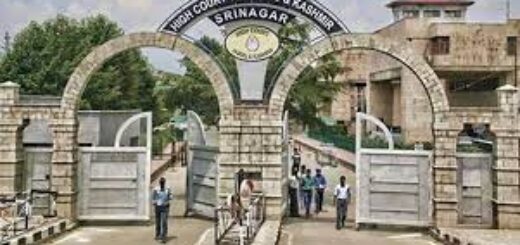The Supreme Court has ruled that the lottery scheme is a betting and gambling activity. It stated that service tax does not apply to transactions between lottery ticket buyers and the Sikkim government.

The Supreme Court decided that a service tax does not apply to transactions between lottery ticket buyers and the Sikkim Government, stating that running a lottery is a form of betting and gambling. This ruling came from a group of Civil Appeals against the Sikkim High Court’s decisions in various Writ Petitions filed by the taxpayers. The two-Judge Bench, consisting of Justice B.V. Nagarathna and Justice N. Kotiswar Singh, noted that while a lottery ticket is an actionable claim, the lottery scheme itself is essentially betting and gambling. They explained that only Entry 62 in List II allows the State Government to impose taxes. The activities of betting and gambling, including lotteries, fall under Entry 34 in List II, with Entry 62 being the relevant tax entry. Since there is no agency relationship or service provided by the respondents to the Sikkim Government, a service tax is not applicable to the transactions between lottery ticket buyers and the Government.
The Bench emphasized that the term “betting, gambling or lottery” in the Explanation to Section 66D(i) of the Finance Act, 2012 should be understood correctly. Conducting a lottery is simply an activity that fits within the definition of betting and gambling, as clarified by the principle of noscitur a sociis, meaning that the term ‘lottery’ derives its meaning from “betting and gambling.”
Advocate Chandrashekara Bharathi represented the Appellants, while Senior Advocate S. Ganesh and Advocate A.R. Madhav Rao represented the Respondents. The Respondents, who were private companies, sold paper and online lottery tickets organized by the Sikkim Government. They had agreements with the State. The cases contested amendments to the Finance Act, 1994, starting from 2012. The Act was changed to add a new taxable service called “Business Auxiliary Service” under sub-section (19) of Section 65. Following this change, the Service Tax Department sent notices to the Respondents, asking them to register for service tax under the amended Act in 2007. The assessees were unhappy and went to the High Court to challenge the service tax on lottery ticket sales.
The Court ruled in favor of the assessees, stating that they did not have to pay service tax for their activities. This decision was appealed to the Supreme Court, and while the appeal was ongoing, the Finance Act, 1994 was amended again. The Court addressed the main issue but left the question of the validity of the Explanation open. Later, when the High Court dismissed the challenge to the Explanation in Section 65 (19)(ii), the assessees filed a Special Leave Petition (SLP) to the Supreme Court. The Supreme Court overturned the High Court’s decision, and the Finance Act was amended again to remove the Explanation. This new amendment was contested, and the High Court ruled in favor of the Writ Petitions, leading the Revenue to appeal to the Supreme Court.
The Supreme Court, after considering the arguments from the lawyers, observed that the relationship between the State Government and the sole distributor was one of equals, not one of principal and agent. The Court pointed out that the Agreement’s various clauses showed the sole distributor was acting independently when purchasing lottery tickets for resale. This was in line with the Lotteries Act, which is federal law, and it also took into account the public’s trust in the lottery programs run by the Sikkim Government. The Court explained that Parliament intended for any transaction involving an actionable claim, like a lottery, to exclude activities done by the distributor for lottery distribution, meaning these activities do not qualify as betting, gambling, or lottery.
The Court also mentioned that the Finance Act of 2015 changed the definition of “consideration” in Section 67. This change included any amount kept by the lottery distributor or selling agent from the total sales of lottery tickets, along with any fees, commissions, or discounts received. However, the Court stated that this amendment would not affect the main legal provisions because the distributor purchases tickets at a wholesale price from the State Government and sells them at a higher price to retailers.
The change made in 2016 to clause [ii(a)] of the Explanation 2 to Section 65B(44) stated that the term “transaction in money or actionable claim” does not cover activities done for payment that relate to or help a transaction in money or actionable claim. This includes actions by a lottery distributor or selling agent for the State Government regarding promotion and marketing, as per the Lotteries (Regulation) Act, 1998. The Court viewed this amendment as minor and not significant. Therefore, it concluded that the changes to the Finance Act, 1994, aimed at imposing service tax on the main distributor or buyer of lottery tickets (the Respondents-assessees) were not successful. As a result, the Apex Court dismissed the Appeals.
Cause Title: Union of India & Others v. Future Gaming Solutions Pvt. Ltd. & Another Etc. (Neutral Citation: 2025 INSC 181)









